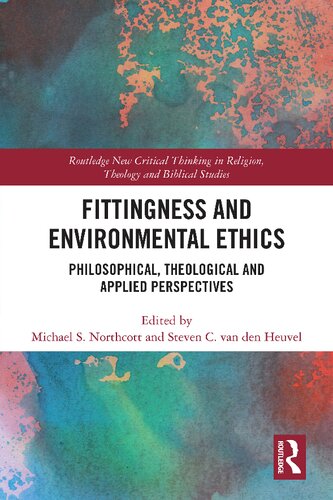

Most ebook files are in PDF format, so you can easily read them using various software such as Foxit Reader or directly on the Google Chrome browser.
Some ebook files are released by publishers in other formats such as .awz, .mobi, .epub, .fb2, etc. You may need to install specific software to read these formats on mobile/PC, such as Calibre.
Please read the tutorial at this link: https://ebookbell.com/faq
We offer FREE conversion to the popular formats you request; however, this may take some time. Therefore, right after payment, please email us, and we will try to provide the service as quickly as possible.
For some exceptional file formats or broken links (if any), please refrain from opening any disputes. Instead, email us first, and we will try to assist within a maximum of 6 hours.
EbookBell Team

4.1
40 reviewsThis volume focuses on ‘fittingness’ as an ethical-aesthetical idea, and in particular examines how the concept is beneficial for environmental ethics. It brings together an innovative set of contributions to argue that fittingness is a significant but under-investigated facet of human ethical deliberation with both ethical and aesthetic dimensions. In widely diverse matters – from architecture to table manners – individuals and communities make decisions based on ‘fittingness’, also expressed in related terms, such as appropriateness, prudence, temperance, and mutuality. In the realm of environmental ethics, fittingness denotes a relation between conscious embodied persons and their habitats and is of relevance to judgements about how humans shape, and take up with, the non-human environment, and hence to ethical decisions about the development and use of the environment and non-human creatures. As such, fittingness can be of great benefit in reframing human relationships to the non-human, stimulating a way of living in the world that is fitting to the preservation of its fruitfulness, goodness, beauty, and truth.